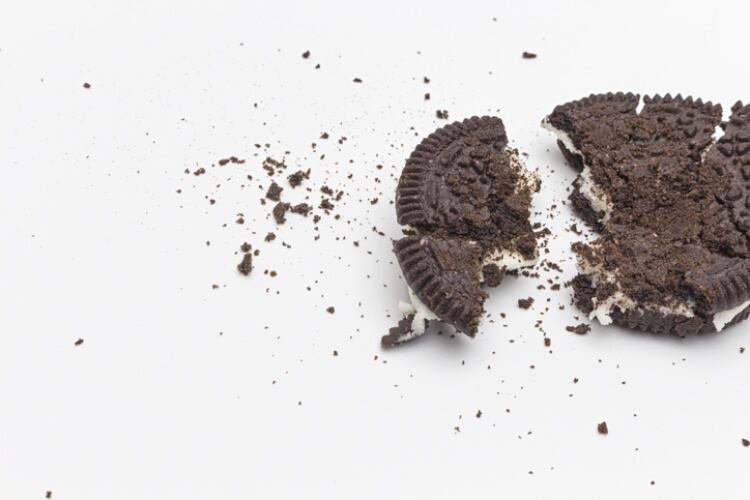Some of America’s biggest bakery, snack and breakfast cereal brands are facing courtroom battles over allegations tied to consumer trust, brand protection and product integrity.
Kellogg Company, PepsiCo, Mondelēz International, Conagra and Amazon are among the big names currently in court over class action lawsuits that could reshape how the industry approaches packaging, claims and copycats. And these aren’t just spats over slogans or design tweaks – they strike at the core of what brands are allowed to say on a box, bag or bottle.
Billions in brand equity, tighter regulatory scrutiny and the fine print that guides consumer loyalty are all on the line.
While disputes over trademarks and misleading offers aren’t new, the latest wave of litigation reflects an increasingly high-stakes environment.
This summer’s lawsuits span everything from pun-heavy food truck names (L’eggo My Eggroll) to ‘100% natural’ claims allegedly undermined by synthetic ingredients – a flashpoint behind a growing wave of litigation in recent years – not to mention contaminated products slipping through mainstream e-commerce platforms. With consumers demanding more transparency and regulators keeping a closer watch, the margin for error – or ambiguity – has narrowed dramatically.
For brand owners and marketers, the message is threefold: first, there’s far less legal tolerance for packaging or positioning that too closely echoes established brands, especially in a visually driven retail landscape; second, unclear or overstated claims – especially around health or naturalness - are an open invitation to class actions; and third, quality lapses anywhere in the supply chain can land back on the brand’s doorstep, especially in today’s always-online marketplace.
Whether you’re leading a legacy cereal brand or developing your next high-protein launch, remember: legal expectations are rising and the cost of consumer disappointment has never been higher.
You better l’eggo that logo

Kellogg has filed a trademark infringement lawsuit against an Ohio food truck operating as L’eggo My Eggroll, accusing it of hijacking its iconic brand assets. The 3 June 2025 complaint alleges the truck’s name, yellow-and-red colour scheme and stylised script closely mimic Kellogg’s Eggo waffle packaging, causing a “likelihood of consumer confusion.”
According to the filing, Kellogg issued multiple cease-and-desist letters, which were allegedly ignored. Instead, the truck’s operators allegedly issued threats, demanded buyouts and even blamed Kellogg for medical issues related to receiving legal correspondence. The food giant now seeks an injunction, damages and the destruction of all infringing assets.
The case underscores how established brands are cracking down on even small-scale operators when parody crosses the line into potential confusion. For manufacturers spinning off licensed SKUs or partnering with independents, brand stewardship must go hand-in-hand with legal clearance.
Kellogg North America Co. LLC v. Leggo My Eggroll Ohio LLC, Case No. 3:25-cv-1154, in the US District Court for the Northern District of Ohio. Kellogg is represented by Mary A. Hyde, Deborah J. Swedlow and Yafeez S. Fatabhoy of Honigman LLP.
Snap, Crackle, oops

In this class action, New York and North Carolina consumers allege Kellogg misled them by promoting time-limited offers such as free movie tickets or Crayola vouchers on product packaging, even after the promotions had expired.
Lead plaintiffs Barbara Seaman and Kyle Corbin claim they bought cereal and Eggo waffles featuring flashy front-of-pack promos with fine print that was either hard to read or only visible after purchase.
Corbin’s complaint references one instance in which he “had to squint” to read the validity dates. Plaintiffs argue that Kellogg’s practice of placing expired offers on still-sellable food items violated consumer protection laws and warranty statutes.
As promotional campaigns grow more complex, marketing teams must work closely with compliance officers to ensure every on-pack offer remains valid while products are in stores. Otherwise, what starts as an enticing giveaway can end in class action.
Barbara Seaman, et al. v. Kellogg Co., Case No. 1:20-cv-05520, in the US District Court for the Eastern District of New York. The plaintiffs are represented by Spencer Sheehan of Sheehan & Associates PC.
Flamin’ Hot or just lukewarm hype?

Richard Montañez – the former Frito-Lay janitor who rose to executive status and celebrity as the ‘inventor’ of Flamin’ Hot Cheetos – sued PepsiCo in 2024 alleging fraud, racial discrimination and defamation. He contended that after years of company-endorsed storytelling, a 2021 Los Angeles Times article undermined his claim to the snack’s creation, damaging his speaking career and public standing.
However, in May 2025, Judge John W Holcomb dismissed the lawsuit under California’s anti-SLAPP law. The court ruled Montañez had not met the threshold to prove defamation or actual malice, citing the subjective nature of PepsiCo’s public comments.
Montañez, who had built an empire around his version of the Flamin’ Hot narrative – including memoirs and a biopic directed by Eva Longoria – has been given until 13 June 2025 to amend his complaint or face dismissal with prejudice.
This cautionary tale signals the importance of documented IP contributions and verifiable origin stories. While storytelling is a powerful branding tool, it must be legally defensible when scrutiny hits.
Montañez v. PepsiCo Inc, Case No. 5:24-cv-01792, in the US District Court for the Central District of California. PepsiCo was represented by Camille Vasquez.
Double stuffed lawsuit

Mondelēz International has filed suit in the Northern District of Illinois against Aldi, alleging the discount grocer’s private label cookies and crackers are “blatant copies” of some of its most iconic snack brands, including the ever-popular Oreo, known for its Double Stuf variety.
The lawsuit includes side-by-side comparisons of Aldi’s Benton’s sandwich cookies and Mondelēz’s Oreos, highlighting similar blue packaging, cookie imagery and font styling. Also at issue are Aldi’s Savoritz crackers, which Mondelēz contends closely mimic its Ritz and Wheat Thins brands.
The complaint claims Aldi ignored repeated warnings and that its copycat packaging misleads shoppers, damages brand equity and violates federal trademark and trade dress law.
With Oreo as one of the most recognisable snacks in the world – and its packaging tightly tied to brand identity – this suit isn’t just about store-brand competition. It’s about drawing a hard legal line around visual brand equity in an era when lookalike packaging can drive impulse buys and blur consumer loyalty.
Mondelēz Global LLC v. Aldi Inc, Case No. 1:25-cv-04811, in the US District Court for the Northern District of Illinois.
Naturally misleading?

Plaintiff Julia Gibson alleges Conagra misrepresented its Orville Redenbacher’s Naturals popcorn as ‘all-natural’, despite including mixed tocopherols: an FDA-approved preservative typically classified as synthetic.
The complaint argues this discrepancy misleads consumers and violates express warranties and state business law. Gibson seeks monetary damages and an injunction to prohibit the continued marketing of the product under its current label.
With natural claims still lacking a federally enforced definition, food manufacturers must tread carefully. Even GRAS ingredients can prompt litigation when packaging implies a standard of purity that isn’t strictly met.
Gibson v. Conagra Brands Inc, Case No. 1:25-cv-02413, in the US District Court for the Eastern District of New York. The plaintiff is represented by Joshua D Arisohn of Arisohn LLC.
Grains of concern

In a class action filed on 23 May 2025, plaintiffs Ashley Wright and Merriman Blum claim Amazon sold Iberia Basmati rice contaminated with arsenic, cadmium, mercury and lead. They allege Amazon failed to test or disclose the presence of these toxins, despite evidence from nonprofit testing group Healthy Babies Bright Futures that some levels exceeded EPA thresholds.
The complaint asserts that Amazon’s lack of disclosure violates both federal law and consumer protection statutes. Plaintiffs are seeking damages, mandated testing and labelling reforms.
For co-manufacturers and platform sellers alike, this case reinforces the need for robust testing and documentation, even when third parties manage fulfilment. Food safety, once buried in the supply chain, is now a frontline concern.
Wright et al v. Amazon.com Inc., Case No. 2:25-cv-00977, in the US District Court for the Western District of Washington. The plaintiffs are represented by Steve W Berman and Meredith Simons of Hagens Berman Sobol Shapiro LLP and Rebecca A Peterson of George Feldman McDonald PLLC.
Bar none?

In this consumer class action, plaintiffs allege PepsiCo’s Gatorade protein bars exaggerated protein content and underplayed sugar levels in ways that deceived buyers. The judge allowed the central advertising deception claims to move forward, while trimming some requests for injunctive relief.
With health-conscious shoppers reading macros closely, formulation and label accuracy are critical. Discrepancies – even minor – can open the door to litigation.
McCausland et al v. PepsiCo Inc., Case No. 3:23-cv-04526-PCP, in the US District Court for the Northern District of California. The plaintiffs are represented by Jonathan Shub of Shub Law Firm LLC and Sean L Reis of Reis Law LLC.



